I tried Dyson's new headphones – they're unique, but will people buy at this price?
The Dyson OnTrac, priced £449, feature interchangeable caps and earcups for a unique take in the headphones market
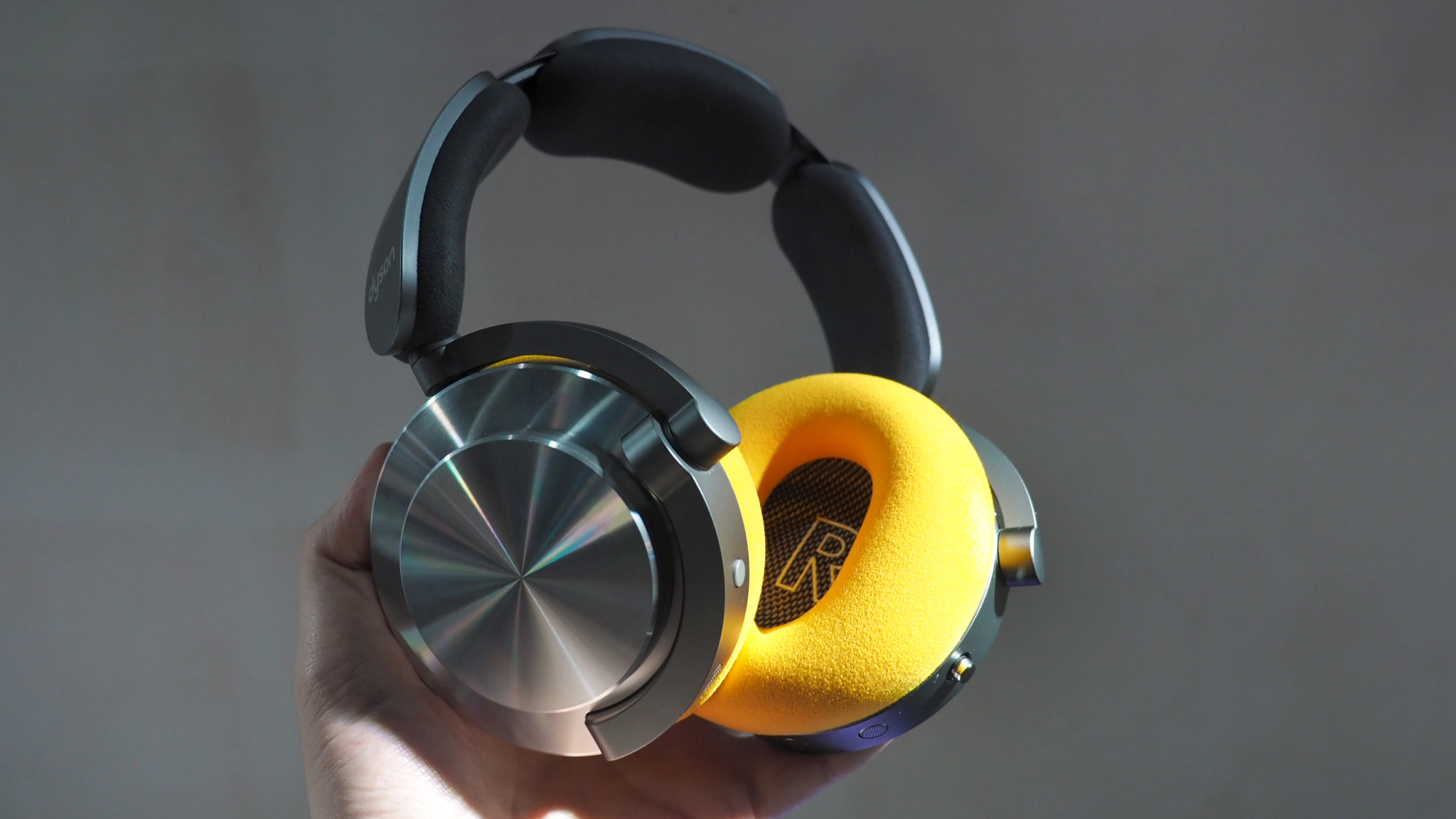
Get all the latest news, reviews, deals and buying guides on gorgeous tech, home and active products from the T3 experts
You are now subscribed
Your newsletter sign-up was successful
It was just over six weeks ago that I embarked on a trip to Dyson's UK headquarters to get a behind-the-scenes secret look at the company's new modular headphones, the Dyson OnTrac. Yes, Dyson has thrown its hat into the best headphones ring proper.
After the muddled reception of the Dyson Zone – that headphones-meet-air-purifier product, clearly inspired by lockdown times (which, admittedly, I couldn't wait to try at launch) – for the British brand to launch headstrong into the best headphones market is a bold statement indeed.
Perhaps less bold than the headphones themselves, though, as the OnTrac feature giant earcups, multiple colourways, even interchangeable earcups and caps – so you can create your own unique mix to suit your preferred style. These are big headphones, too, with lots of battery wrapped into physical sections on the headband.
All of which is very interesting, but it's had me pondering: "will people actually buy these?". After all, Dyson's brand is generally associated with cleaning and air purification products – so will the general public take the leap over to its audio output? Especially with a £449 ($499/AU$799) asking price to consider – plus an extra £49 ($49/AU$79) extra for each colourway accessory purchase.
1. Interchangeable design
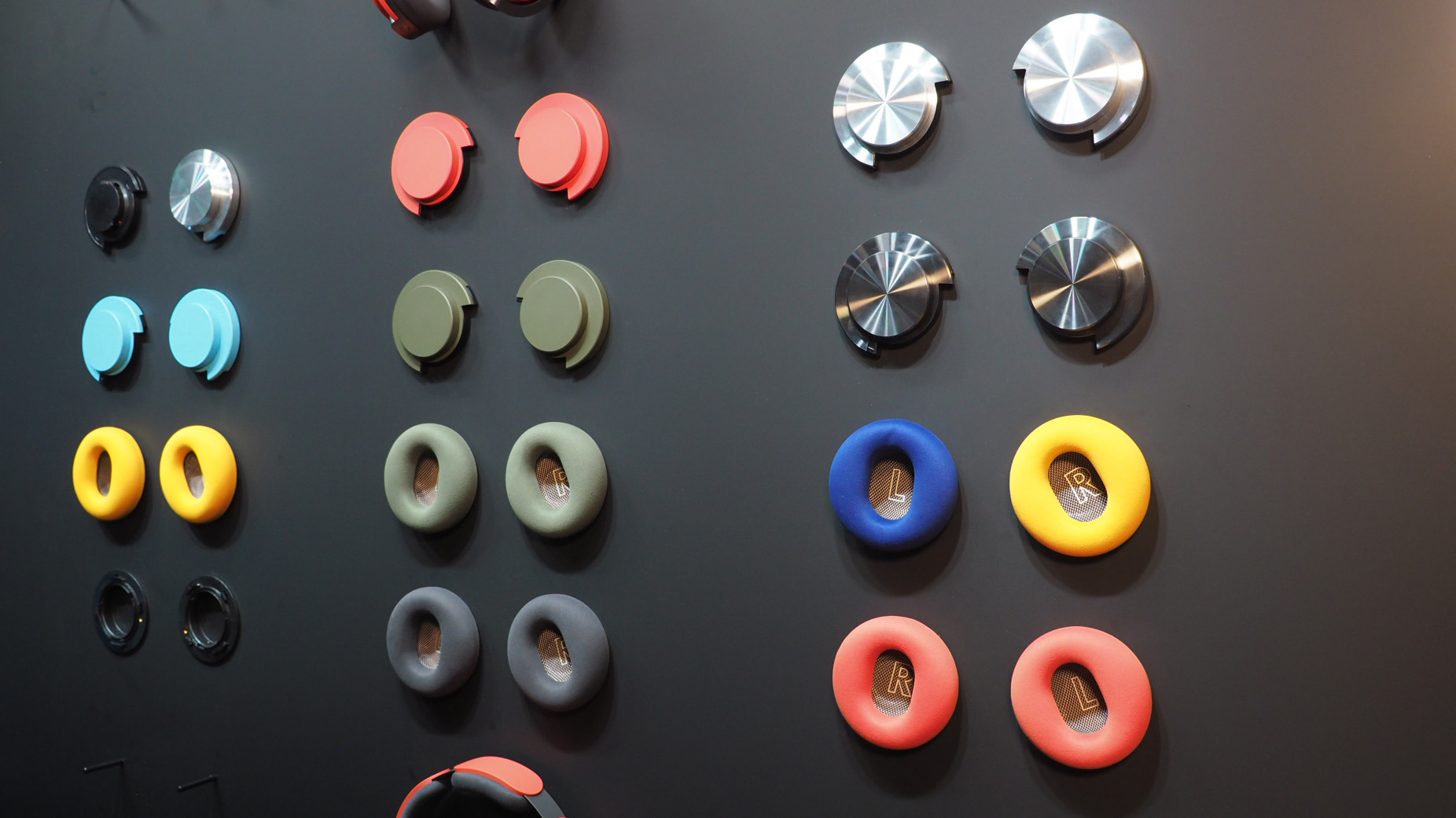
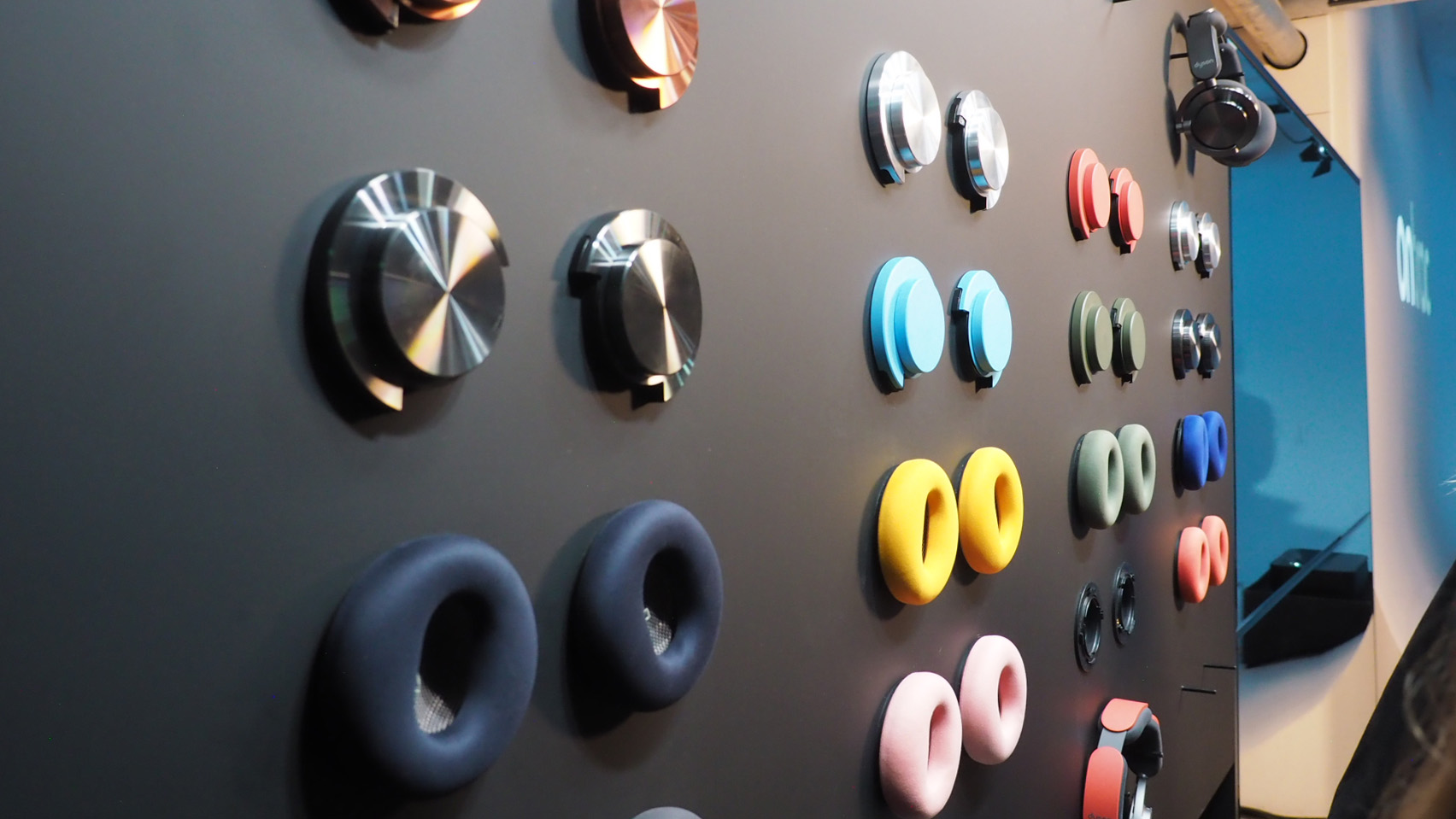
That is one key unique selling point though: the OnTrac will come in four as-boxed arrangements – CNC Aluminium (the yellow earcups, as per my photographs), CNC Copper, Ceramic Cinnibar, and CNC Black Nickel – with additional caps and cushions for customisation purposes also available from Dyson.
There are a lot of combinations (officially thousands when you start to mix and match), so below I've included Dyson's official colour chart and the official images of each of the four products, to make understanding what's what altogether easier to visualise. The finish is impeccable, so each do look great, whatever the colour selection.
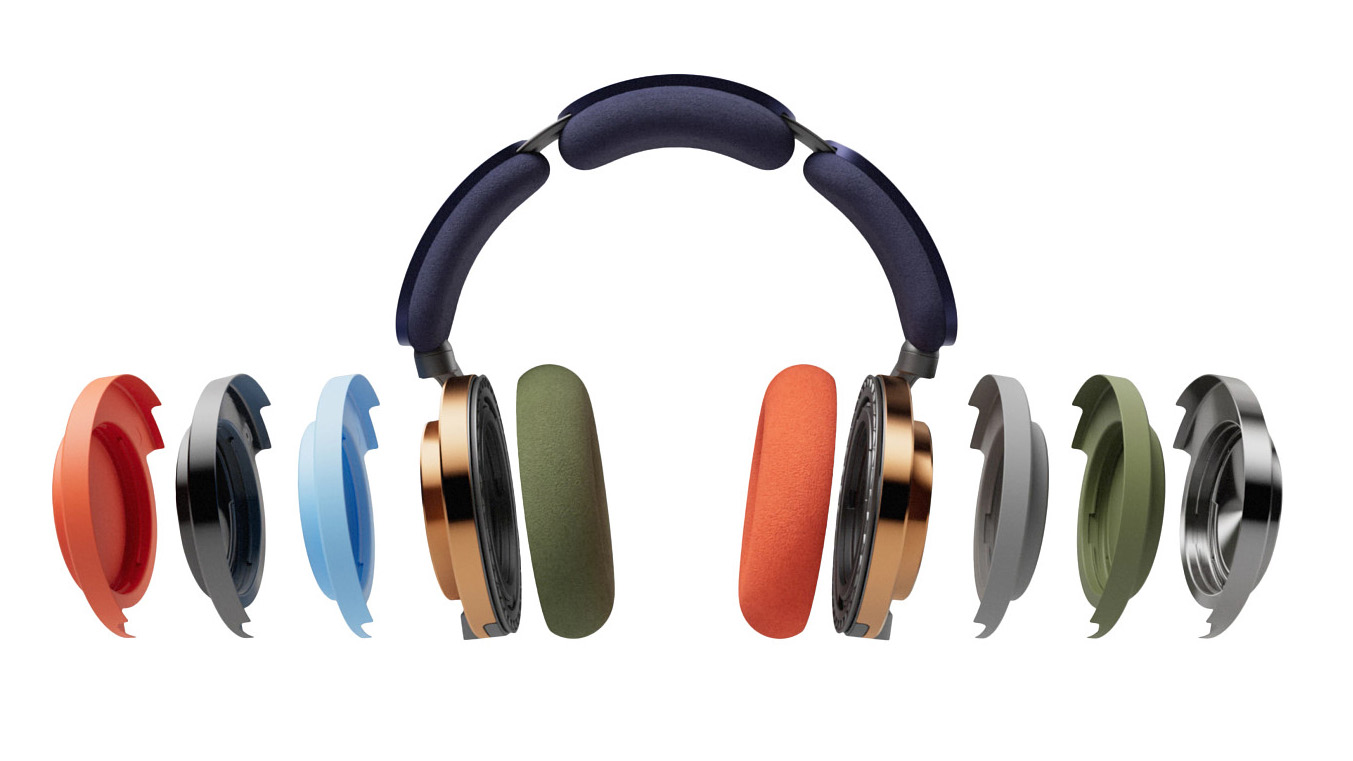
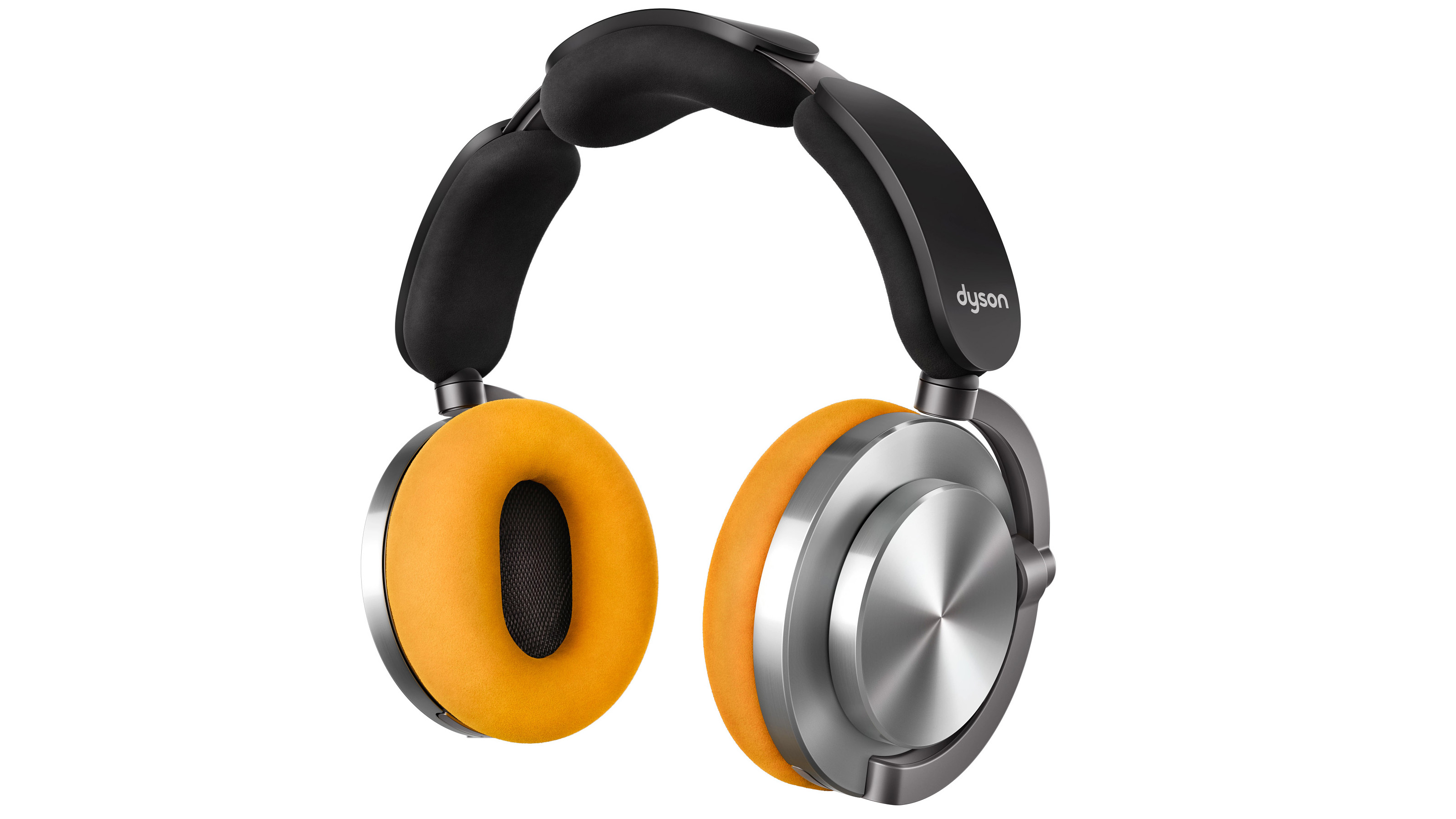
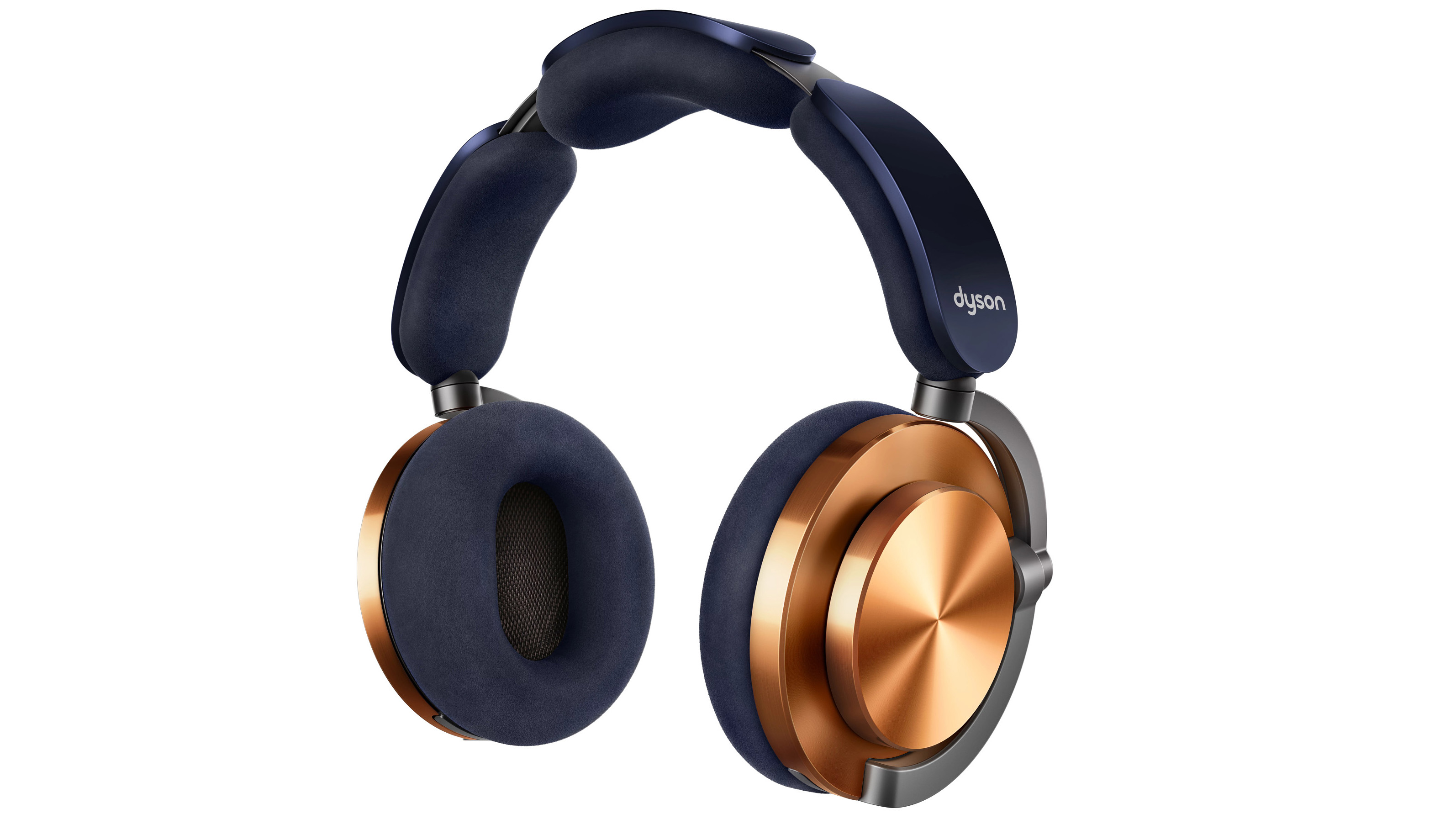
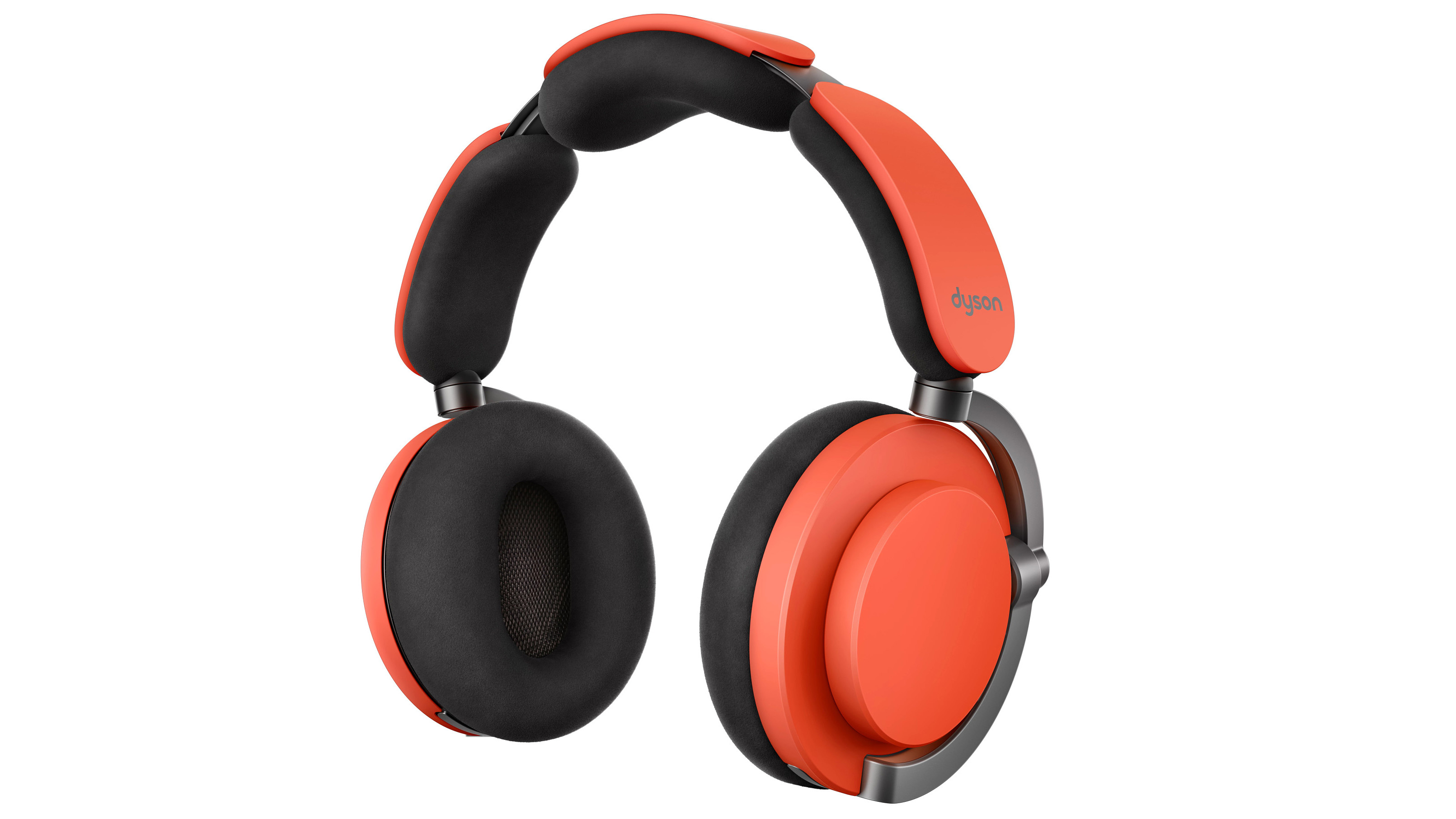
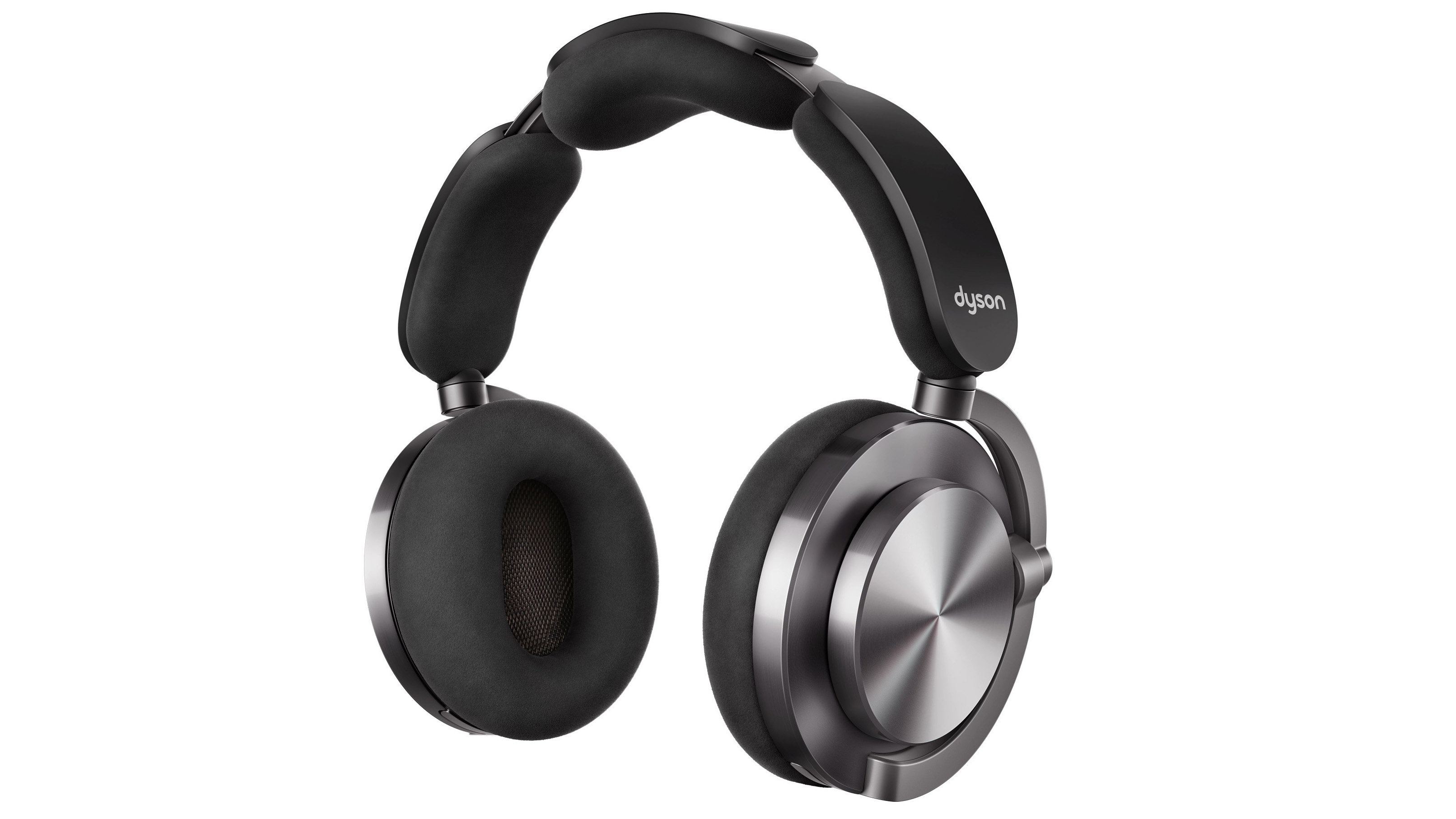
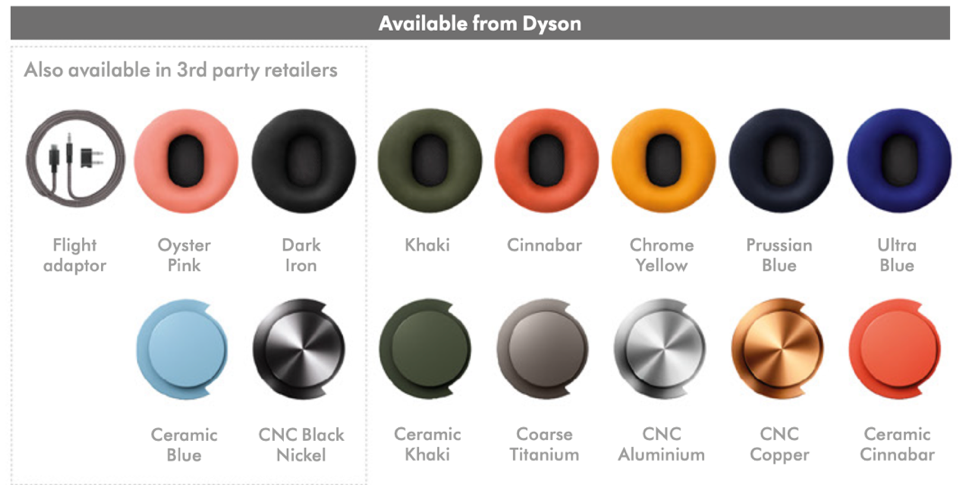
I must say that replacing the sections is very easy too: it's a twist-lock system, so there's no faffing around with screw-down sections or anything like that. Dyson has also engineered those CNC panels in ultra-precise form, so they're super-light, super-slim, yet suitably tough.
Get all the latest news, reviews, deals and buying guides on gorgeous tech, home and active products from the T3 experts
The last modular system I can recall seeing in a product wasn't actually headphones, but was a Pentax DSLR system (the K-50, with over a hundred combinations from various panels). That was a costly exercise, though, and didn't last to the next generation far as I understand. You only need to ask most product-makers how well their 'not black or white' colour options sell – and the truth is that it's a small percentage, irrelevant of how eye-catching they might look.
I don't fall into the 'standard' consumer bracket, really, as I've been reviewing consumer electronics kit for the best part of 15 years – so when something new and shiny and extra colourful comes along it grabs my attention (and photographs better, typically). Whether the multi-colour personalisation approach will be a major point of appeal for prospective customers to open their wallets is another question.
2. Masses of battery
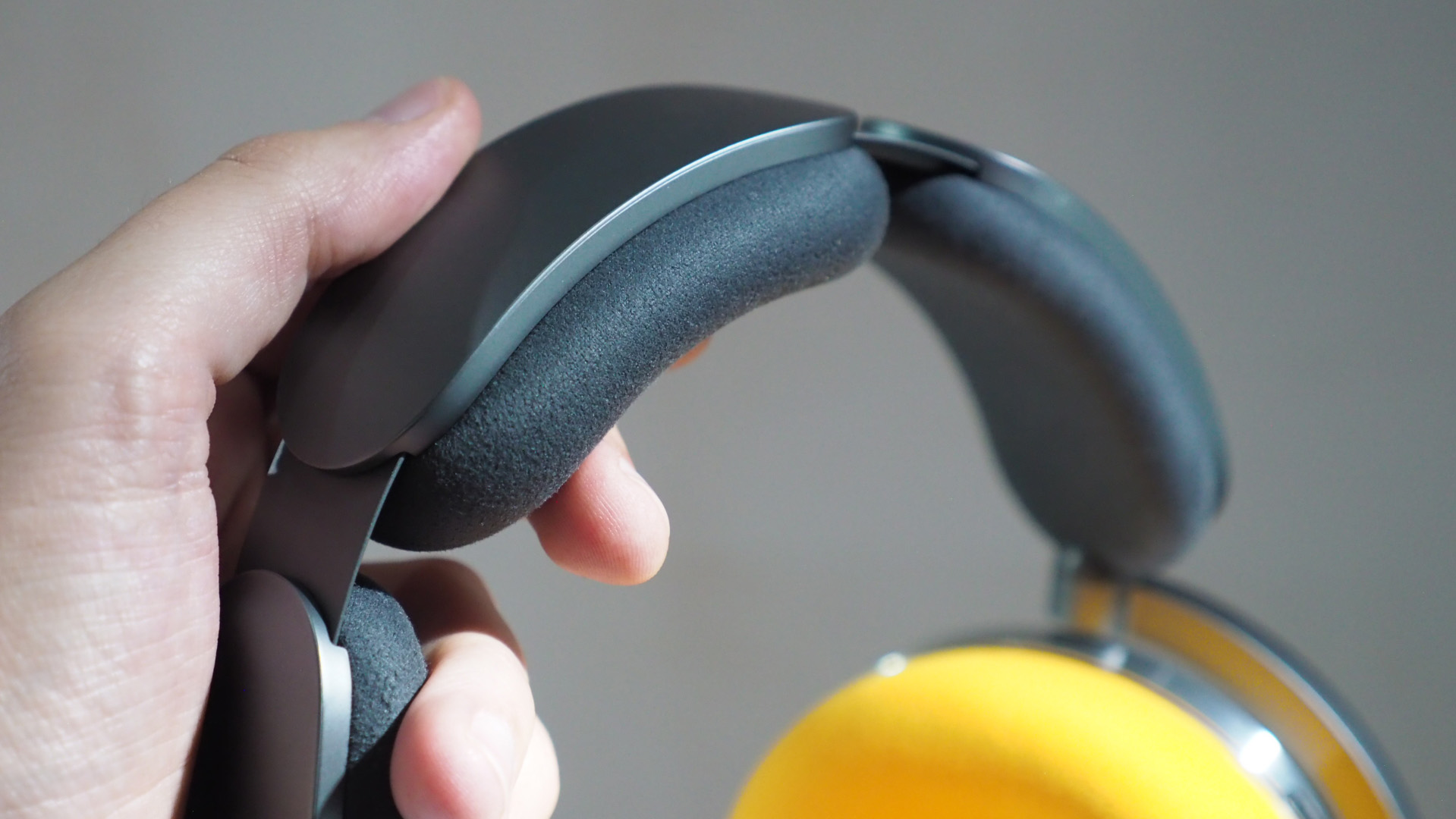
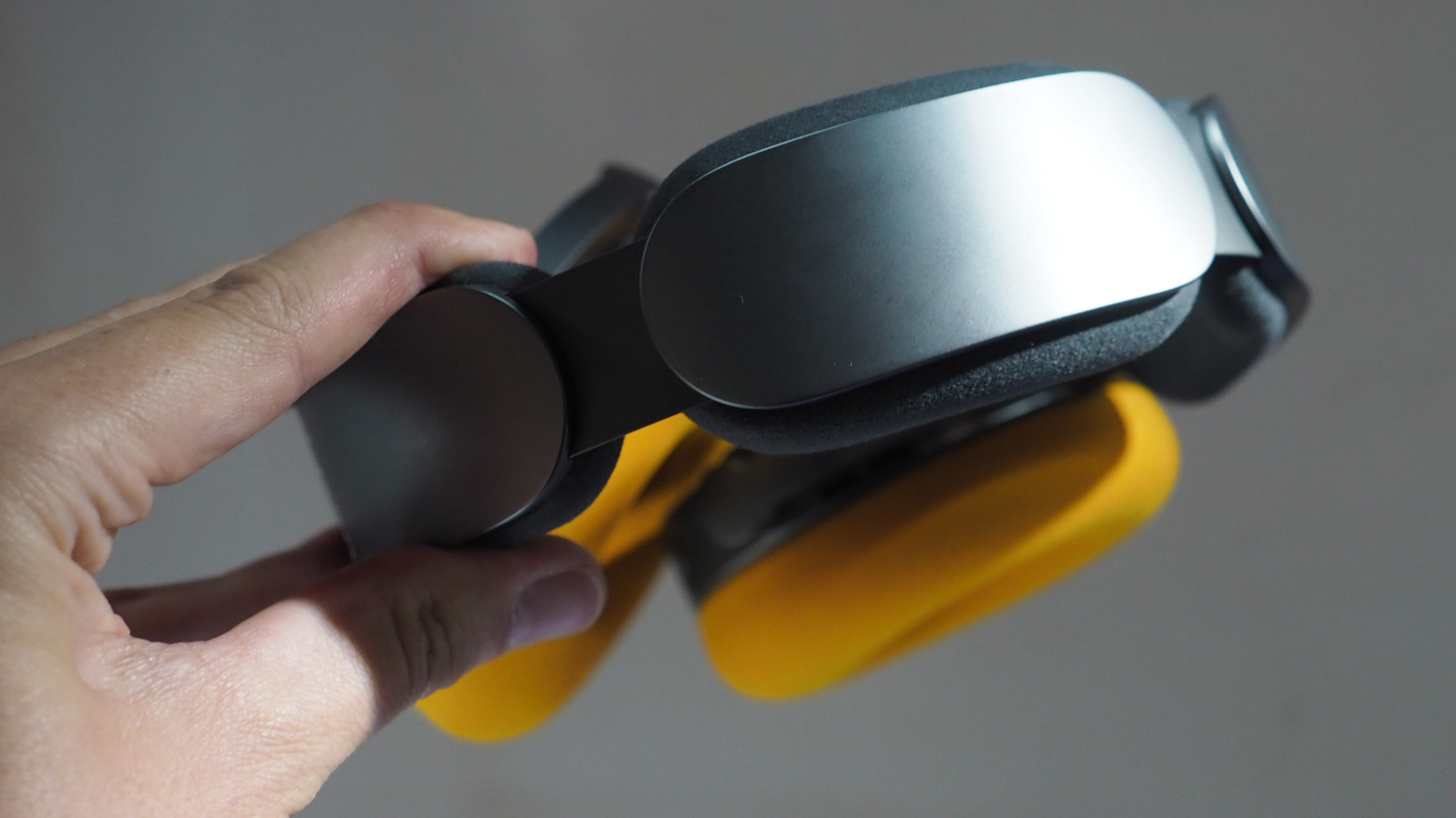
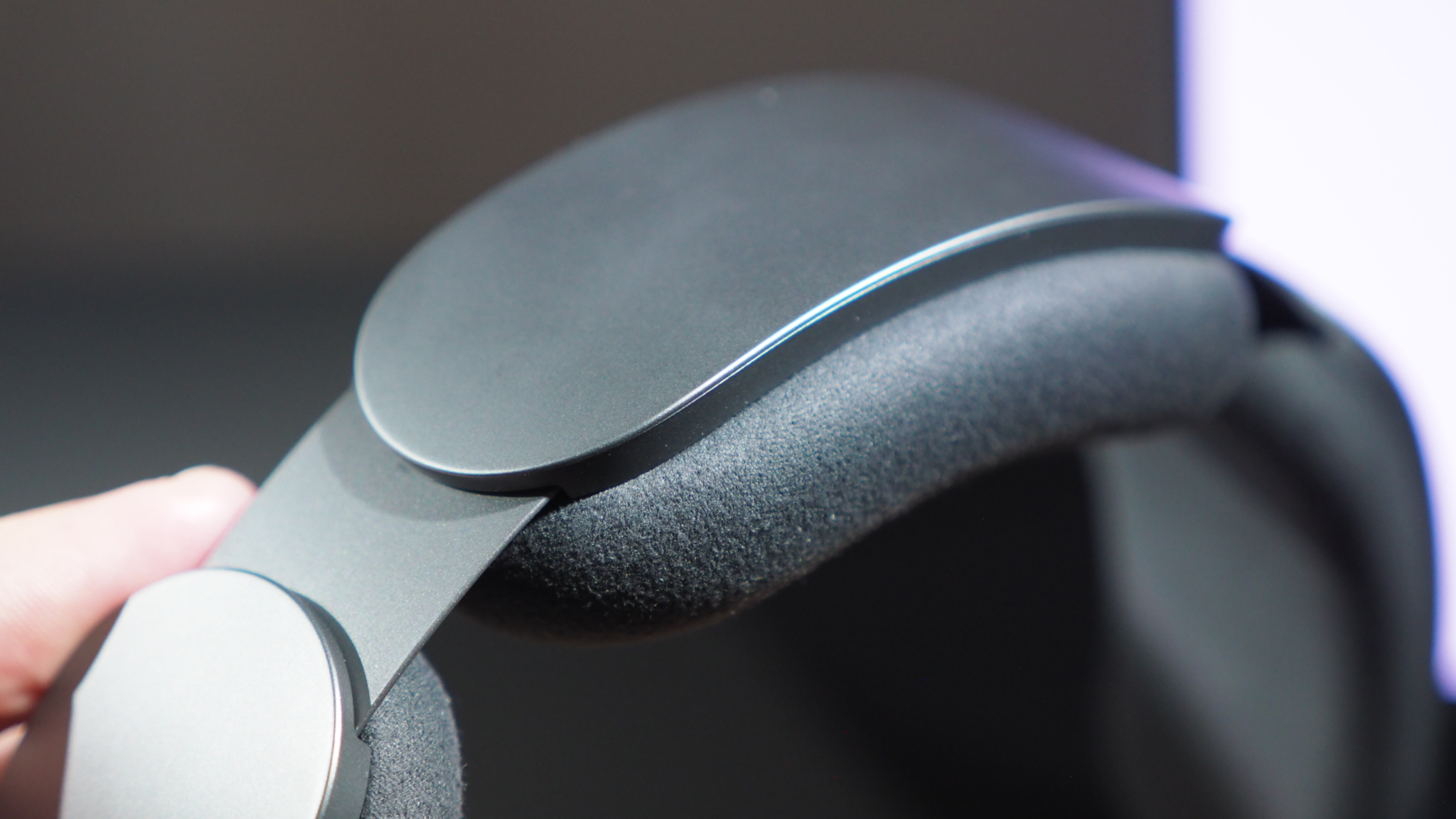
The next unique selling point about the OnTrac is the masses of battery life. Dyson promises 55-hours of listening with active noise-cancelling (ANC) switched on, which will trounce its nearest competition from Sony, Bose and Apple.
So how has Dyson achieved such longevity? It may sound obvious, but the OnTrac literally has more battery cells positioned within the product. It's just not where you'll usually find the batteries in many of the typical best noise-cancelling headphones: Dyson has elected to create headband 'cushions' where the battery sections are located, as you can see in my photographs above.
On the one hand that's a stroke of genius: being able to relocate a battery position without adding discomfort to the wearer, while ensuring it's balanced from a weight perspective across the wearer's head. On the other hand it's a design risk: as you can see, the additional bulk added by those battery sections is a key reason the product looks and feels so large.
3. Big, bold design
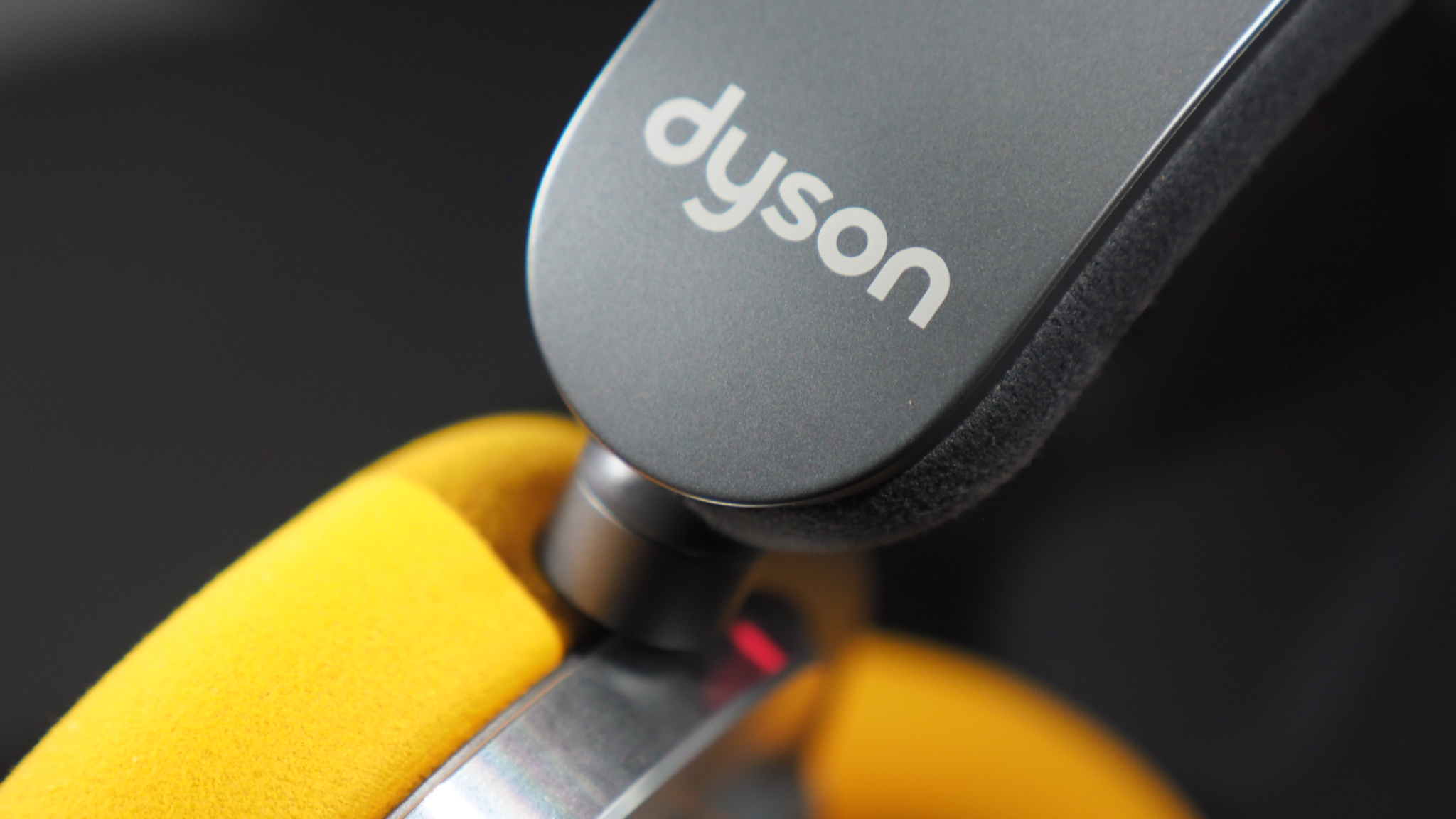
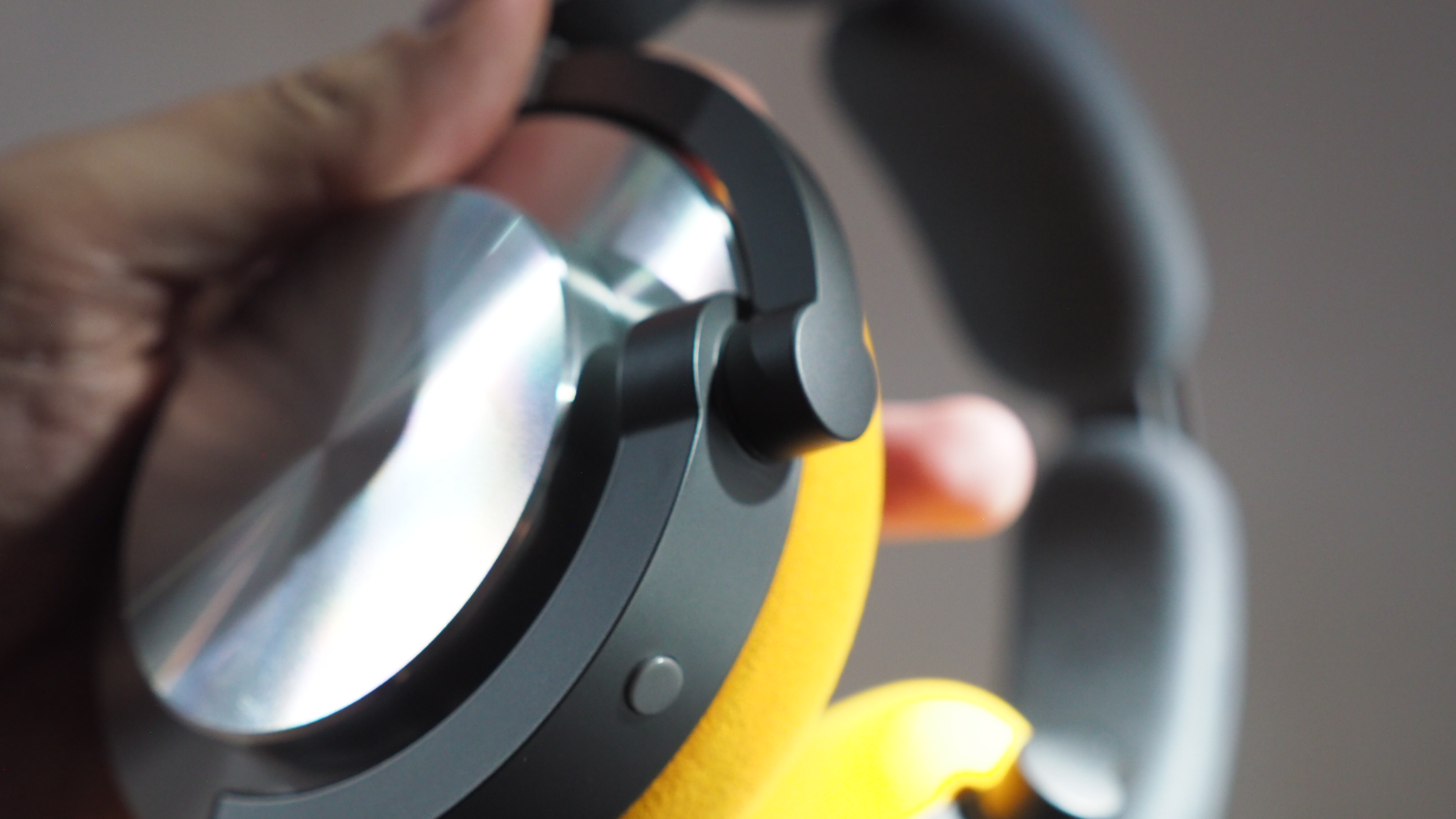
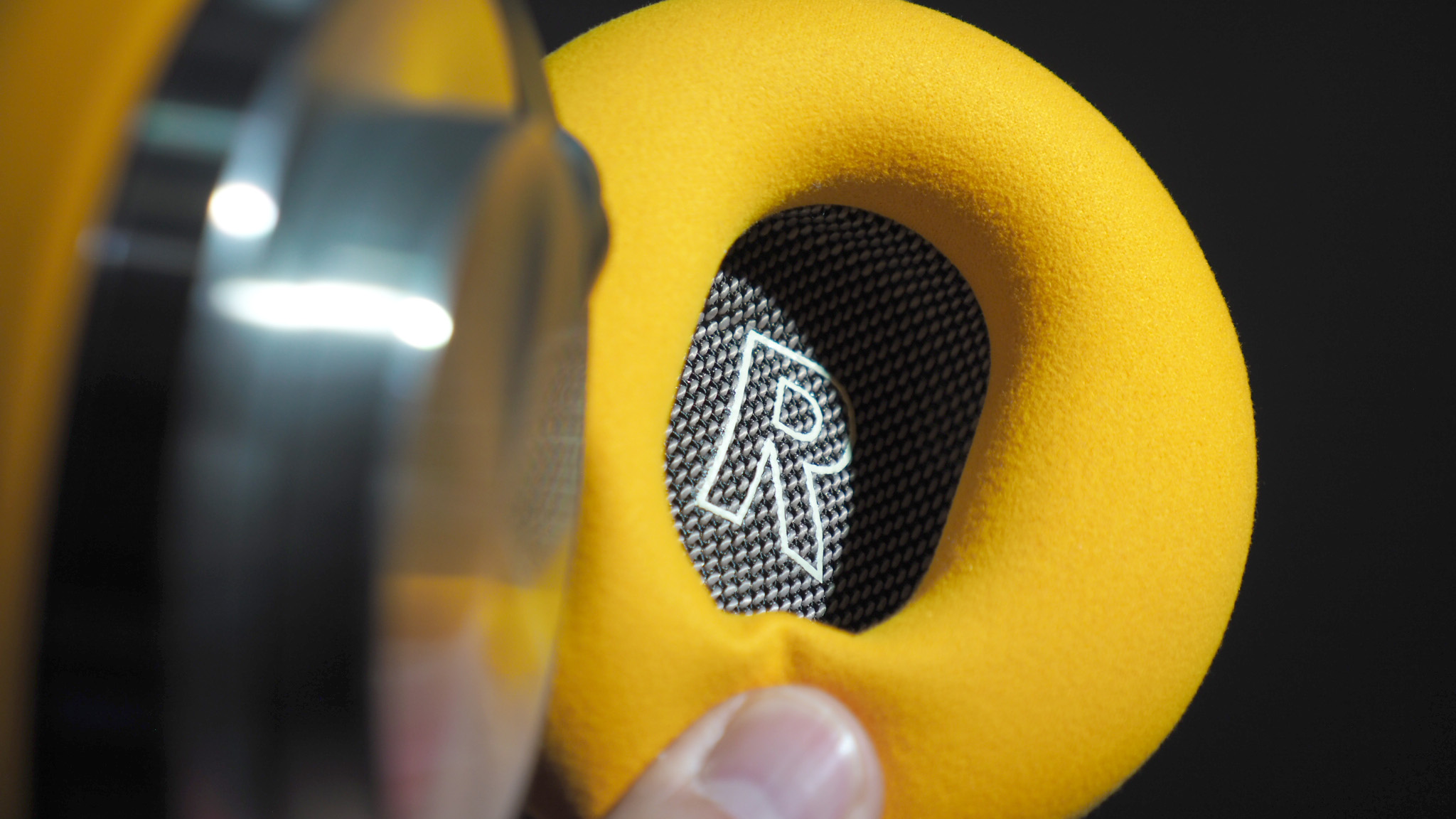
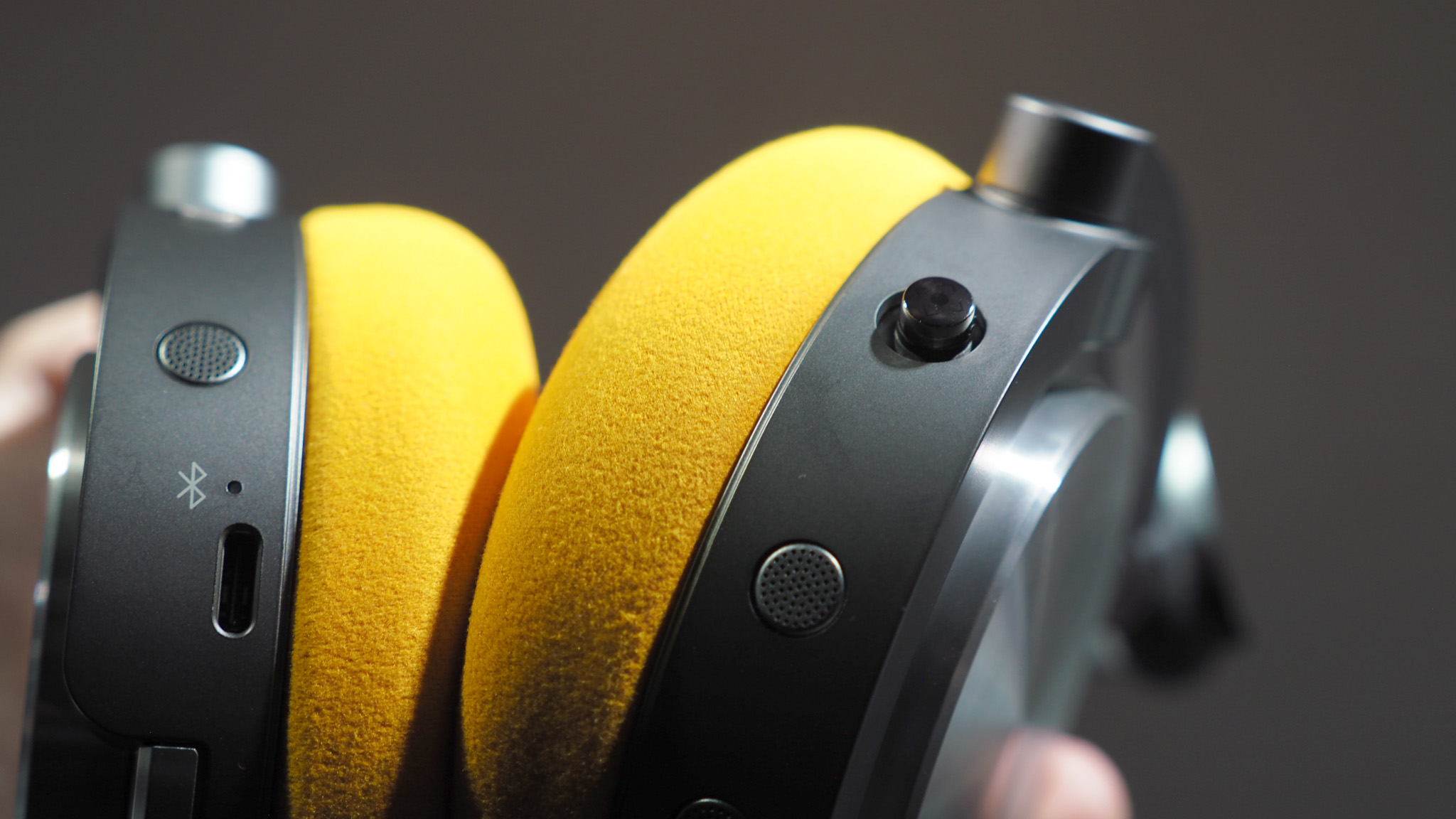
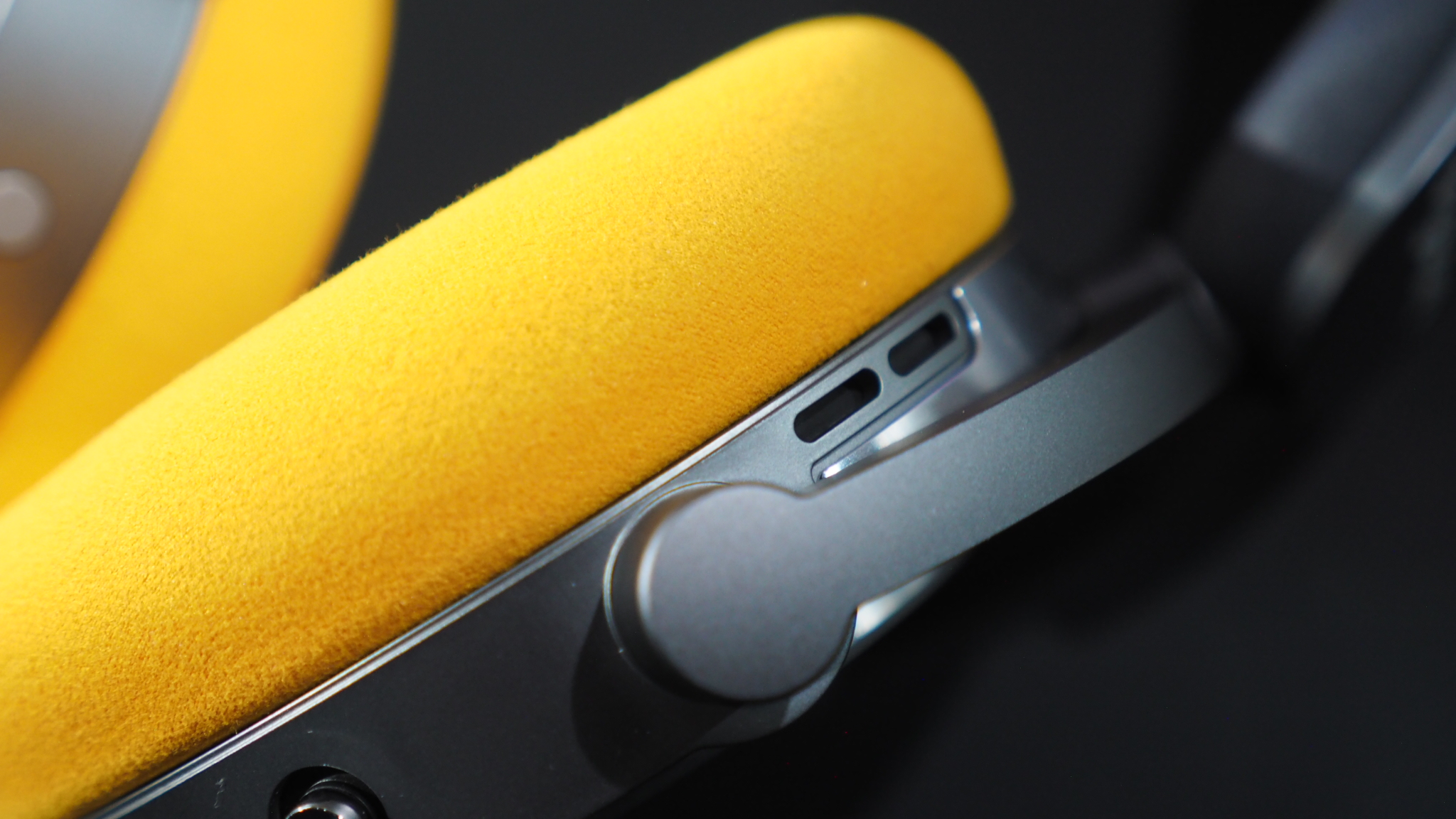
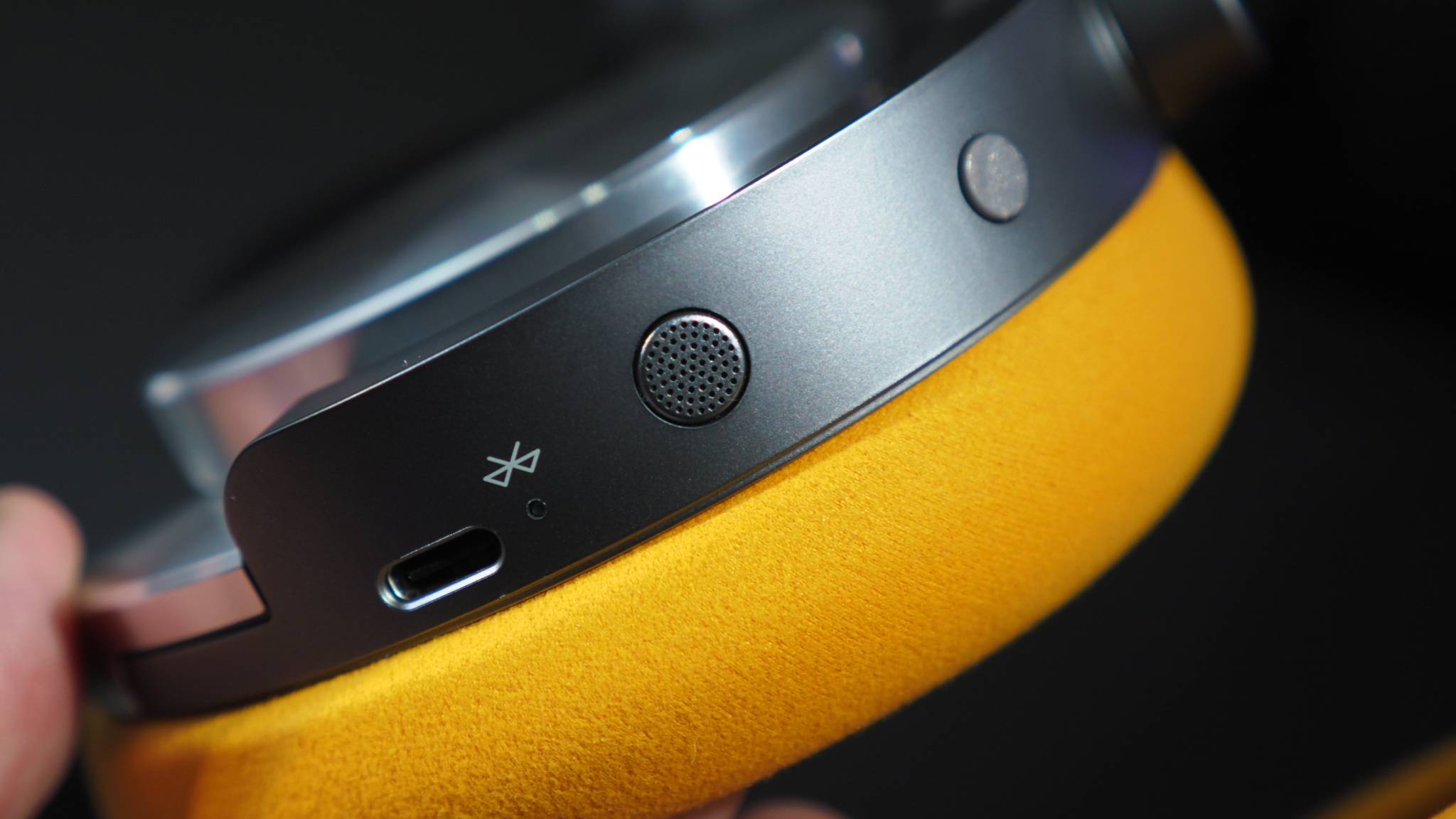
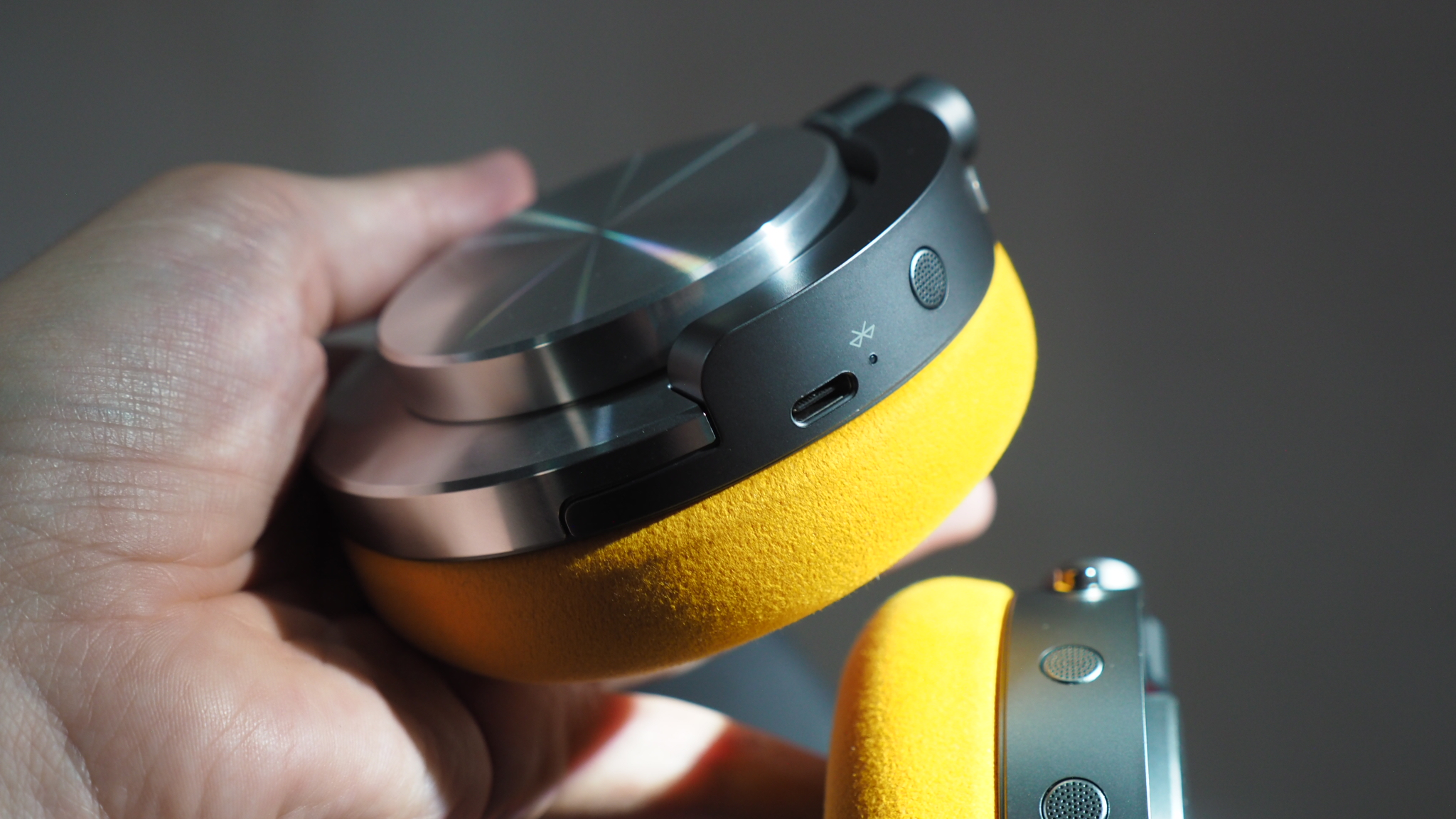
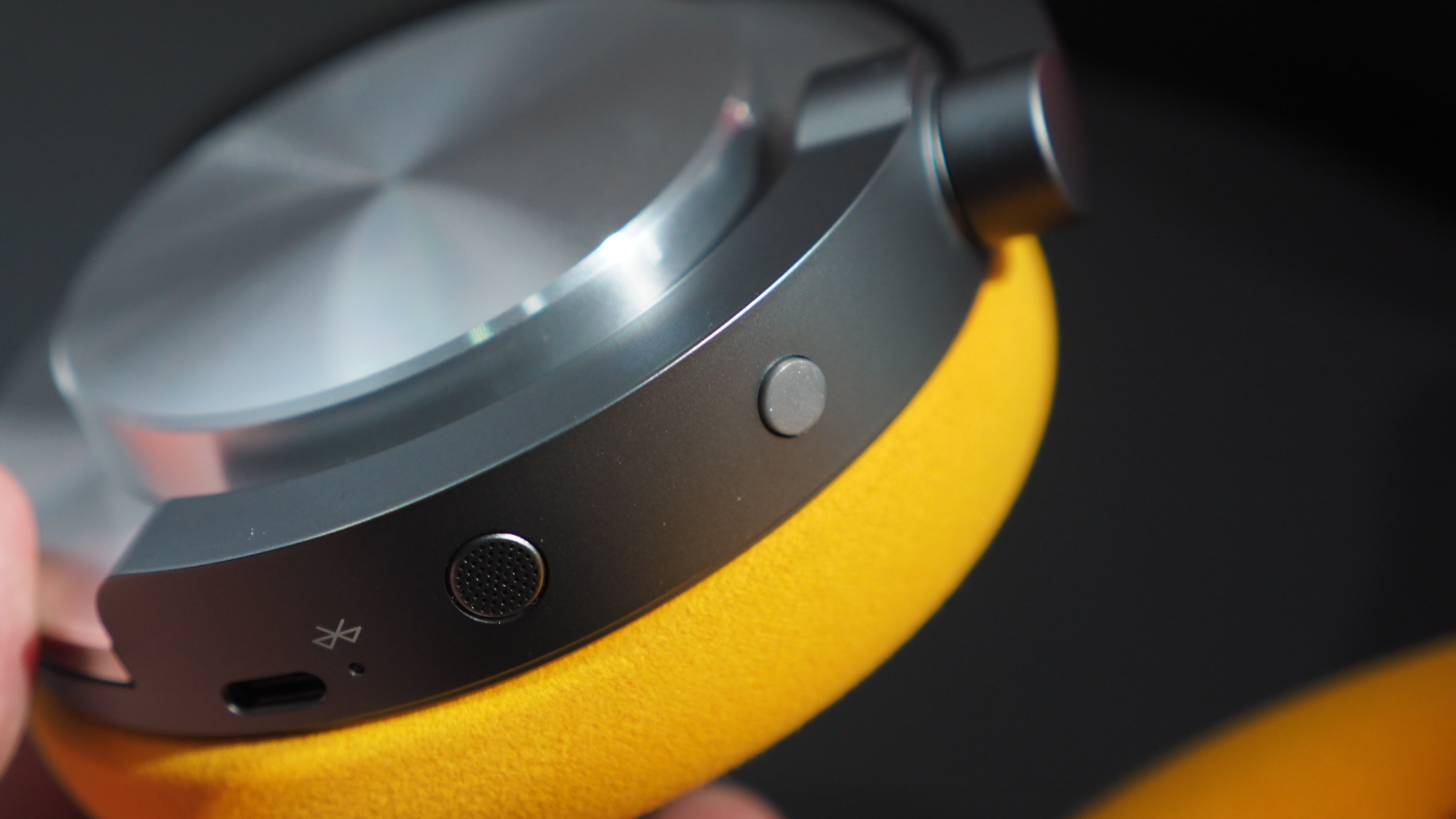
As I've said, there's an impeccable quality to the finish of the OnTrac. But that can't take away from the industrial-like design of these headphones that's part and parcel of the machined aluminium, large earcups and overall scale. I can't help but find them just a bit, y'know, large.
Just because the headphones are big, however, doesn't mean they're in any way uncomfortable nor heavy when worn. Indeed, the OnTrac is US Ergonomics certified, while the use of foam in the cushions and micro-suede on the earcups certainly feels luxury. These aren't 'clampy' headphones either, which is a really important factor for me – and something I loved about the Sonos Ace upon their launch – so I suspect long-time wear will be a breeze (something I'll be further investigating in my full review).
In terms of controls, I think Dyson has gone a step further than any other headphones-maker too. I've never seen a mini joystick control on headphones, which is exactly what you'll find on the OnTrac, and which feels great to use. There's also tap-activation controls on the earcups, automated stop/start wear detection, and a physical on/off button. It's a clever mix of classic and new.



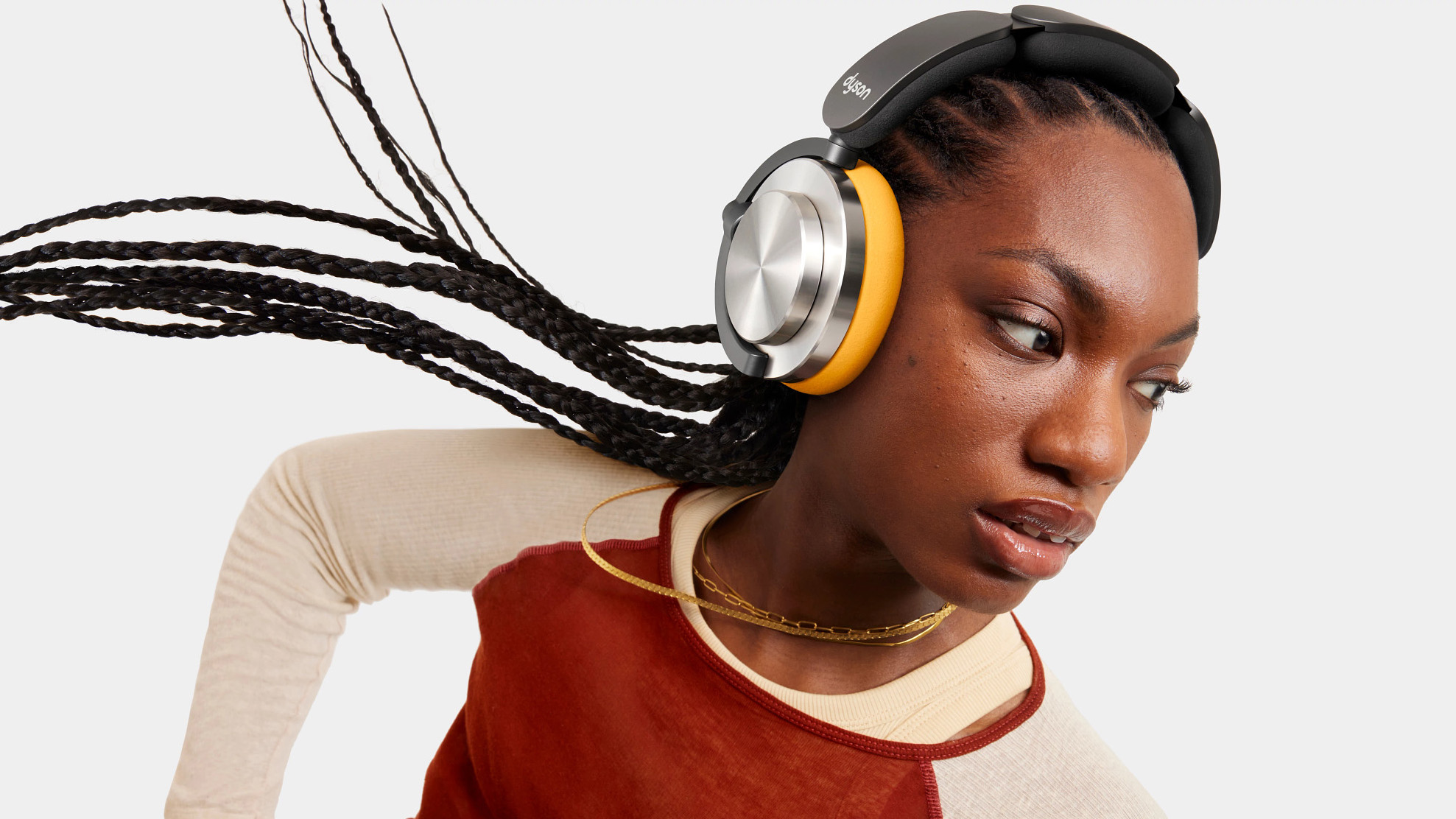
Still, this is clearly a new product category for the brand – as evidenced by the official lifestyle press shots, a gallery of which I've enclosed above – which lean heavily on a fashion-forward edginess in an effort, I can only presume, to segregate itself from Dyson's other product categories. Will that convince punters to wear large headphones with 'Dyson' emblazoned across the headband? That's something only buyers are going to answer.
Initial conclusion
You may have noted that nowhere in this hands-on experience feature have I mentioned anything about the Dyson's sound quality. That's for a simple reason: I tried the OnTrac on at a launch event, which had a DJ banging out tunes in the background. So I can't yet assess how these headphones truly sound.
What I can say, however, is that the active noise-cancelling (ANC) did a great job in blotting out a lot of that background noise. But I've never tested a pair of headphones in a club environment for obvious reasons, so until it comes to full and final review time (next month) my notes on sound quality are, let's say, minimal.
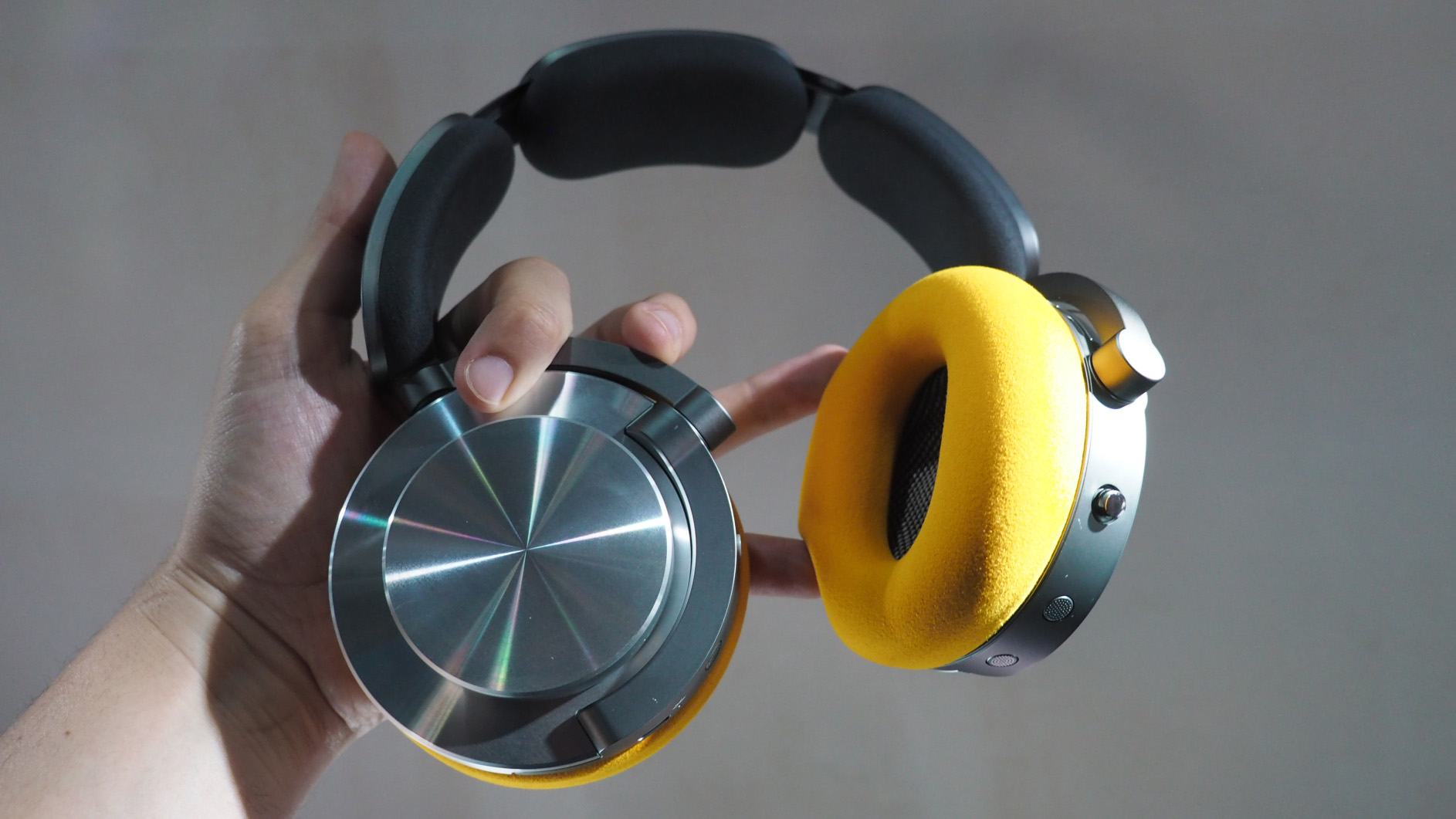
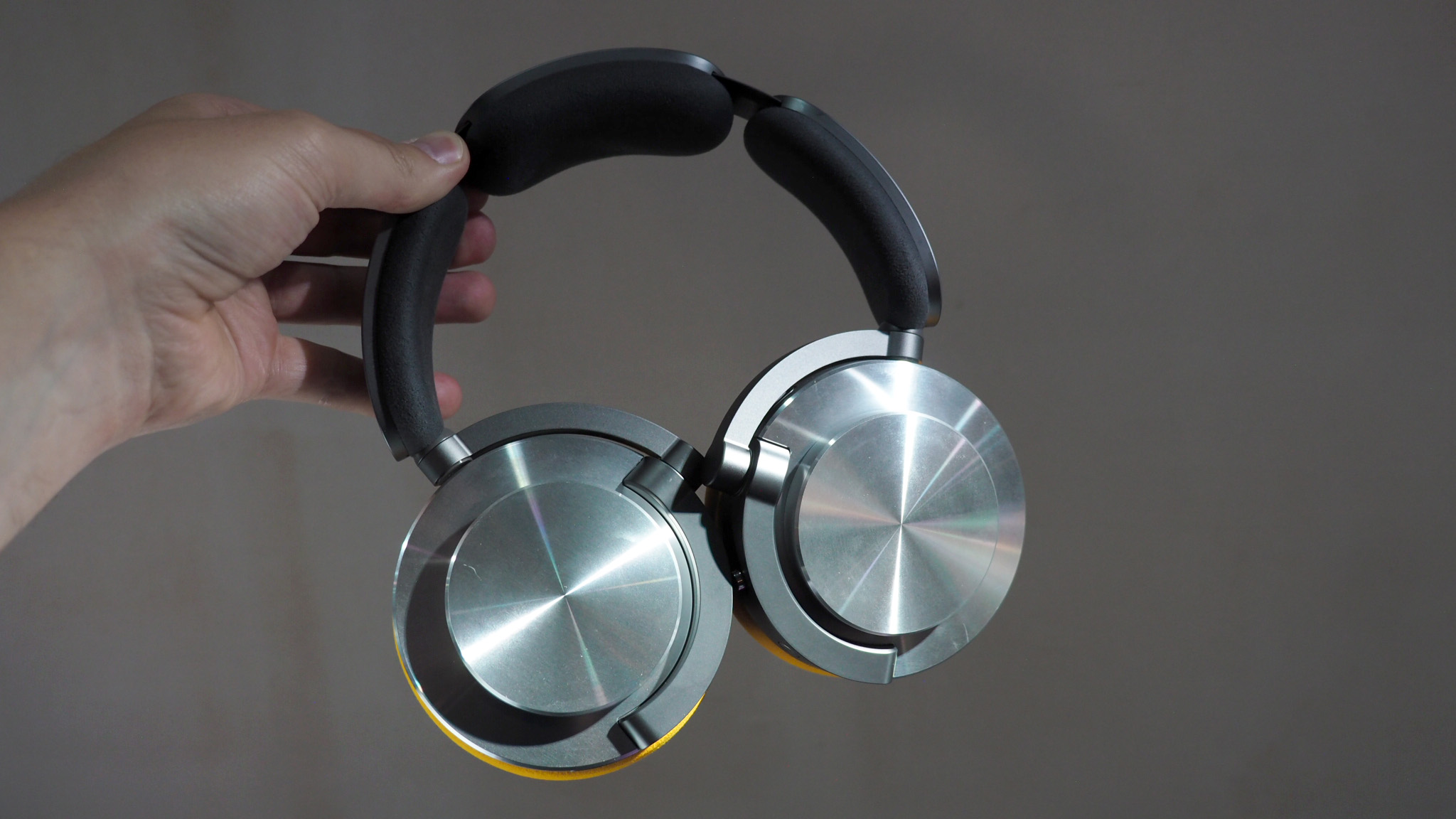
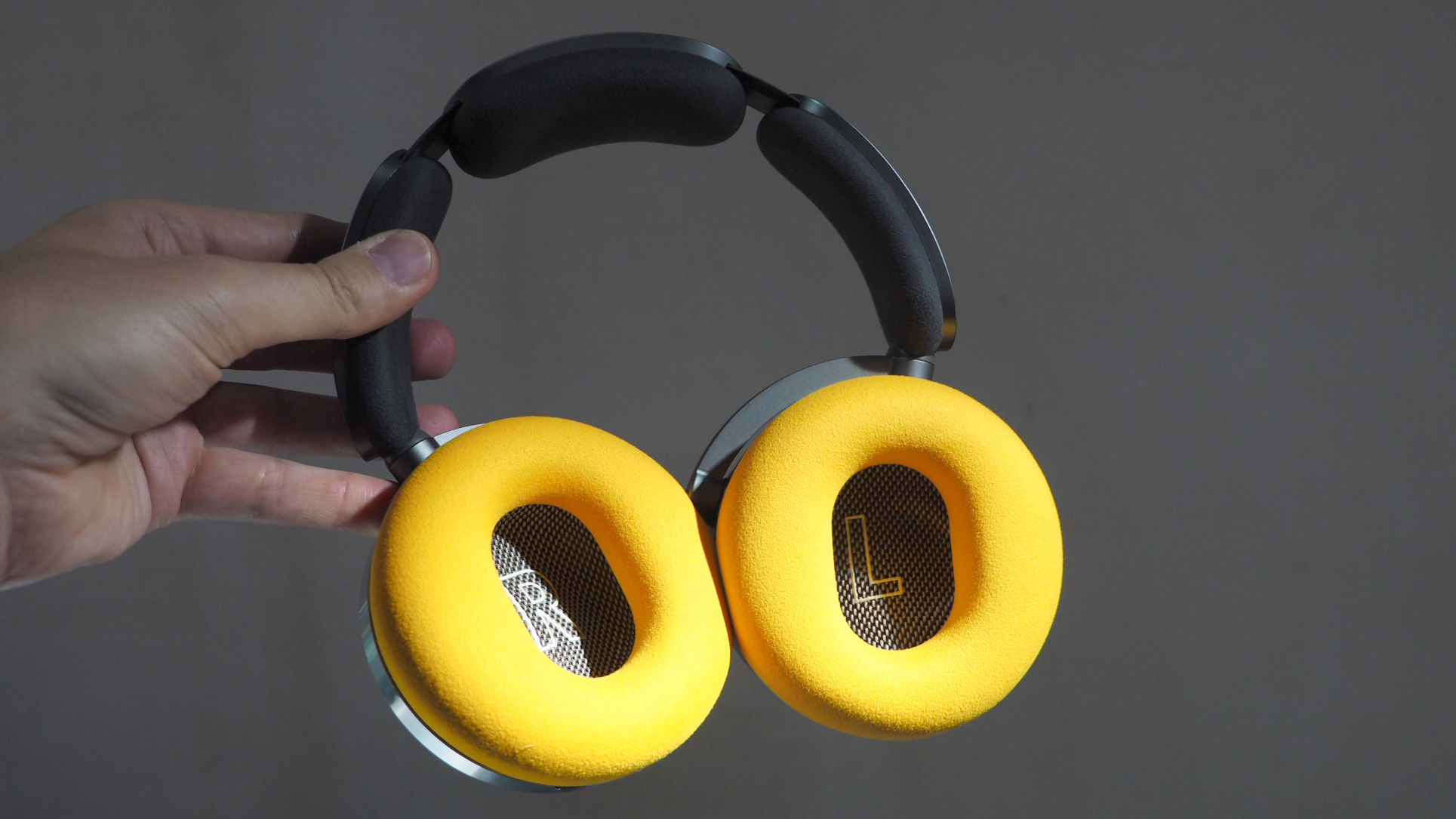
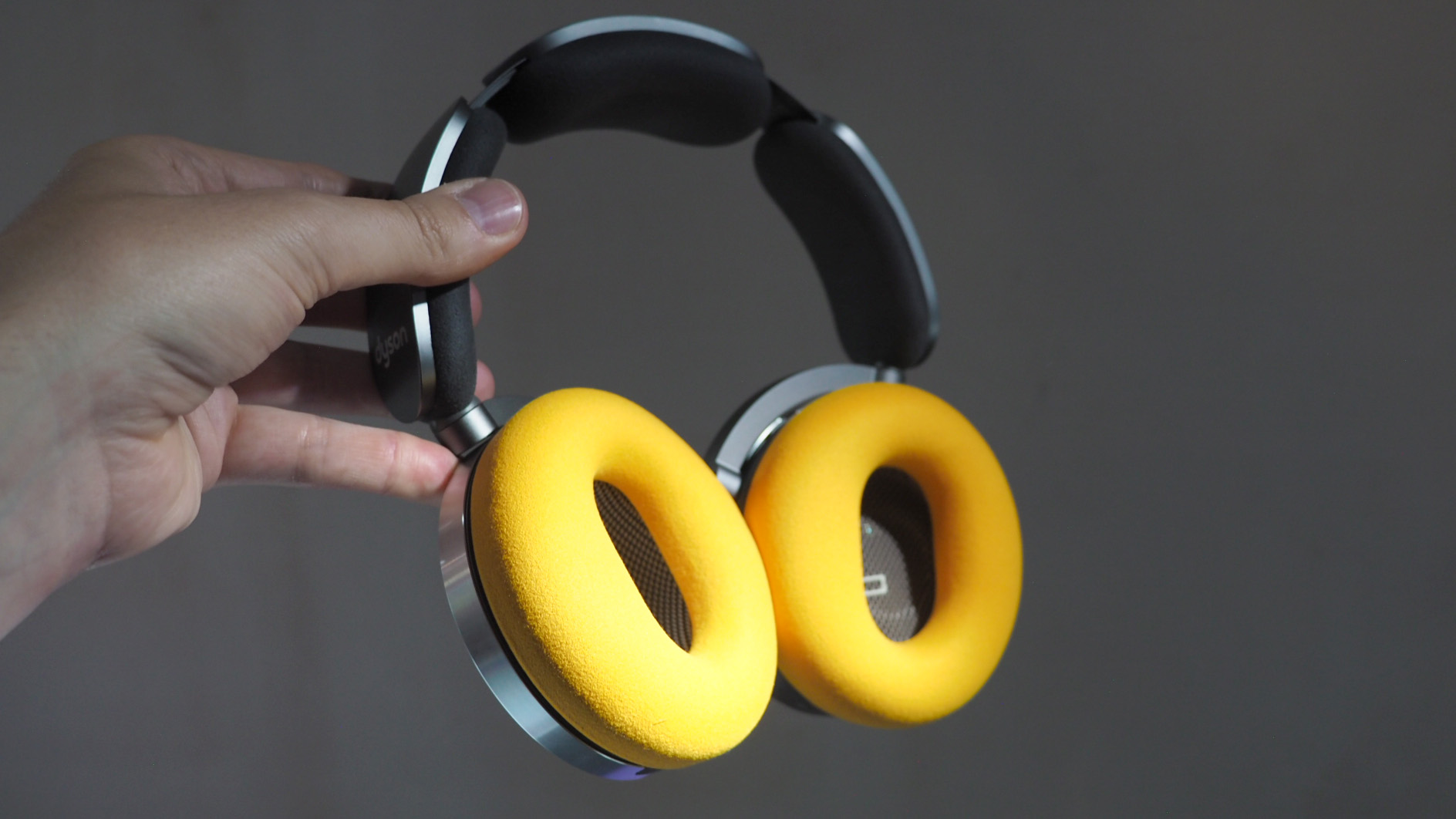
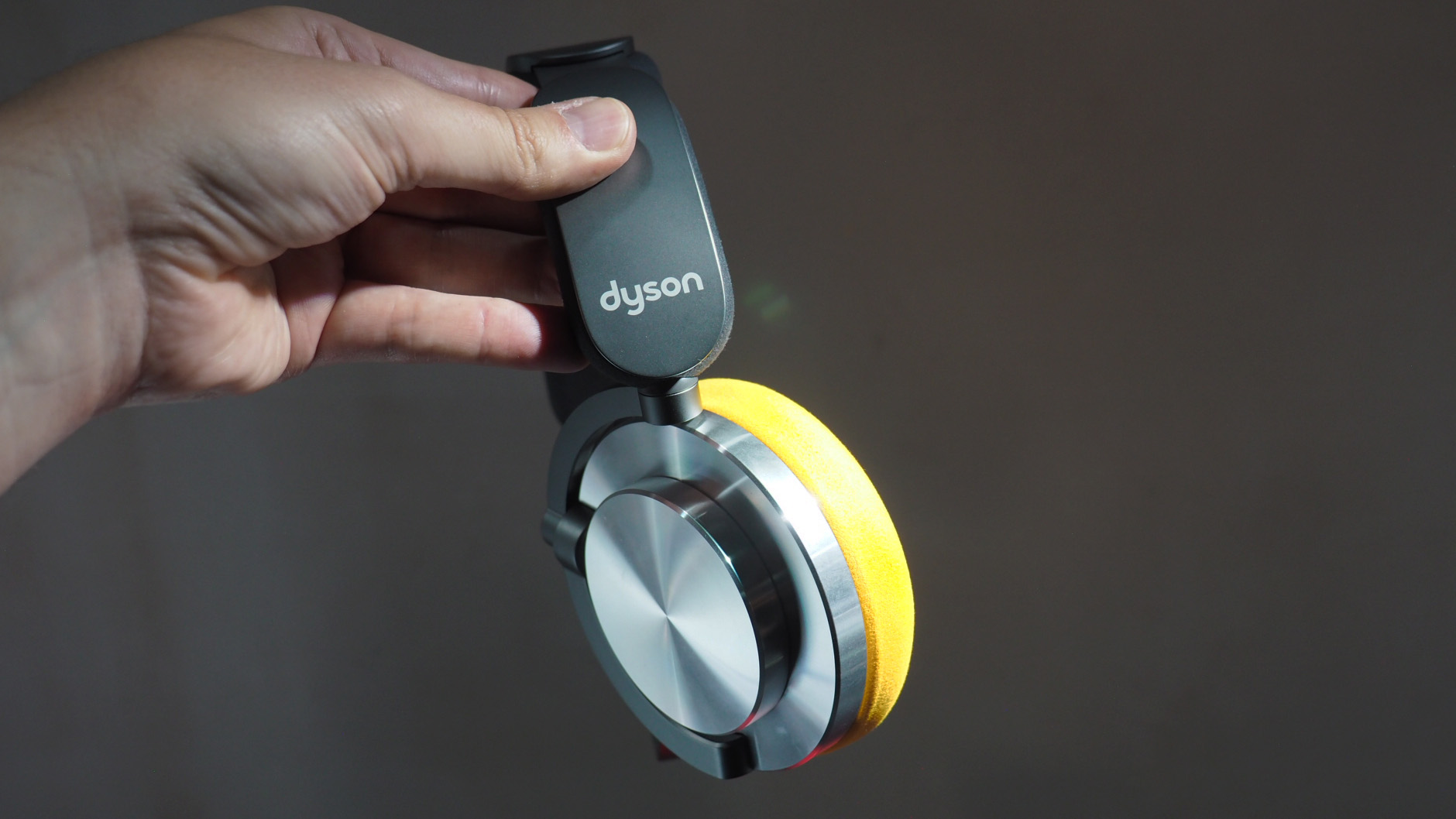
Still, Dyson suggests the sound will be top-notch, with the all-new 40mm neodymium drivers featured here able to deliver a considerable 6Hz through to 21kHz frequency range. At the low-end such sub-bass levels are largely unheard of, except in some of the best wired headphones, and while 6Hz will be frankly inaudible at this scale, there's a clear focus on big bass capability that others scarcely even try to achieve.
Big scale, big audio, big battery and big aspirations – that's the OnTrac in a nutshell. These headphones are certainly unique, thanks to that interchangeable design, but with no spatial audio and that high Apple AirPods Max-matching price tag, Dyson's entry into a new product category will likely raise as many questions as it answers when these go on sale from 1 August.

Mike is T3's Tech Editor. He's been writing about consumer technology for 15 years and his beat covers phones – of which he's seen hundreds of handsets over the years – laptops, gaming, TV & audio, and more. There's little consumer tech he's not had a hand at trying, and with extensive commissioning and editing experience, he knows the industry inside out. As the former Reviews Editor at Pocket-lint for 10 years where he furthered his knowledge and expertise, whilst writing about literally thousands of products, he's also provided work for publications such as Wired, The Guardian, Metro, and more.
